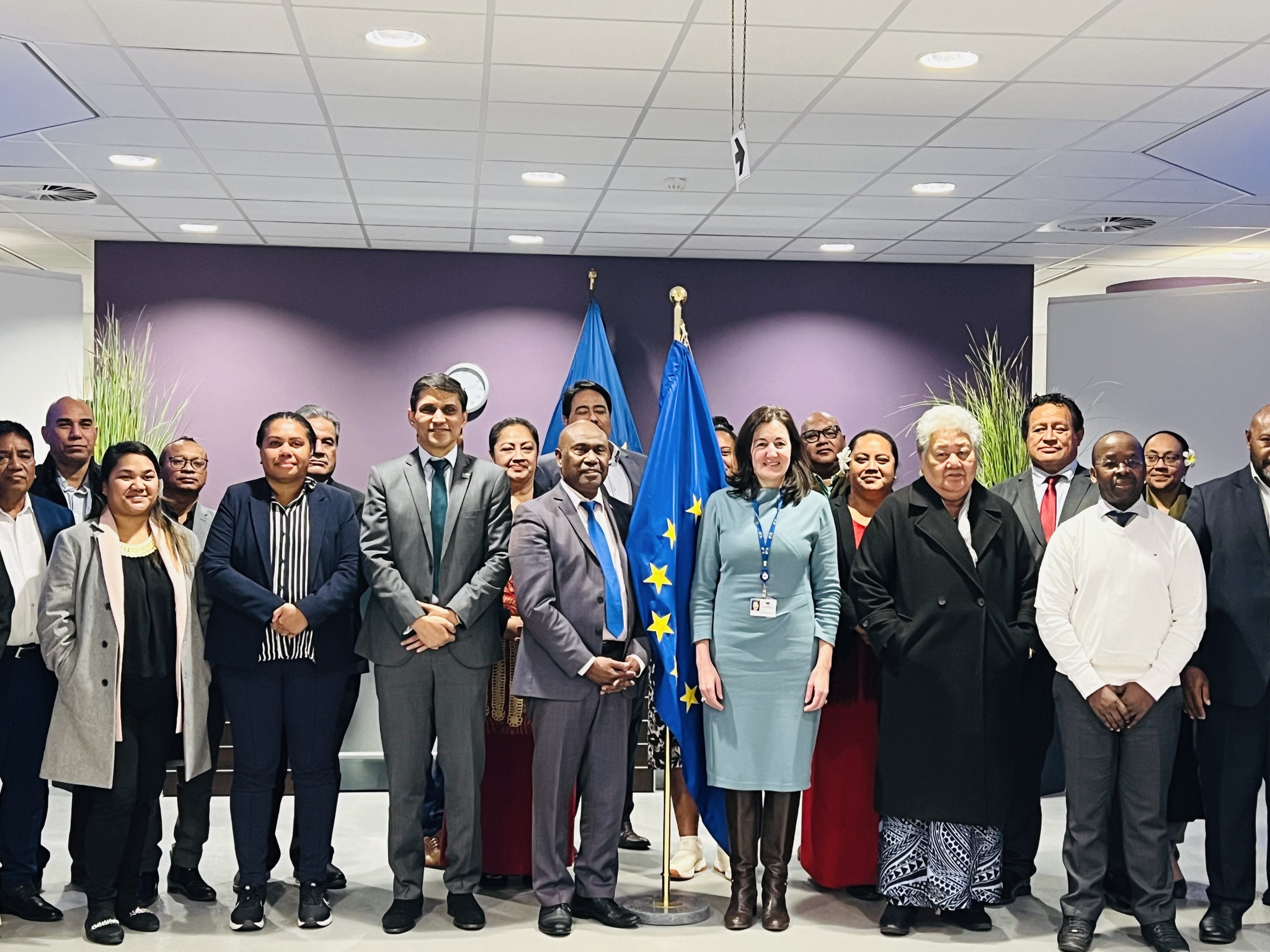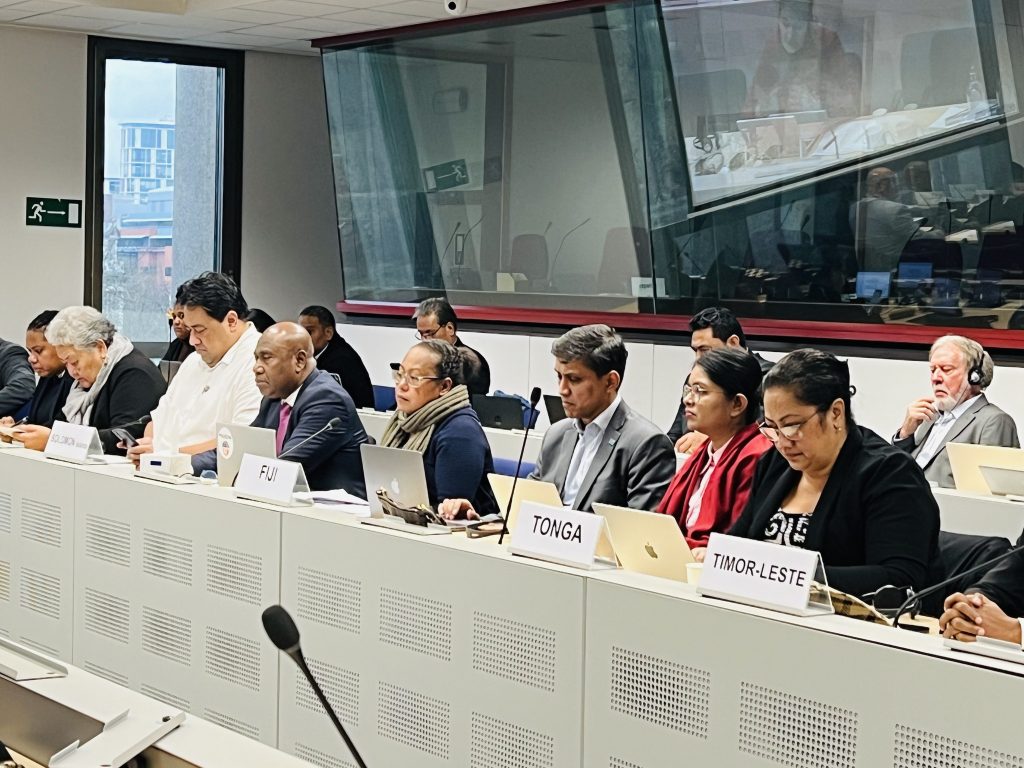
The 10th Meeting of the EU-Pacific Trade Committee concluded yesterday, marking a significant step in strengthening trade and economic relations between the European Union (EU) and the Pacific States under the Interim Economic Partnership Agreement (IEPA).
The Trade Committee Meeting, brought together trade representatives from the EU and Pacific IEPA Parties to discuss key trade-related developments, implementation progress, and future opportunities for cooperation under the IEPA framework.
Discussions centred on enhancing the IEPA’s effectiveness, with updates on the accession of additional Pacific States, including the Federated States of Micronesia, Niue, Tuvalu, Timor-Leste, Tonga, and Vanuatu. Based on a study conducted by Professor Jane Kelsey, the parties also discussed the feasibility of expanding the agreement to include trade in services and investment facilitation.
Fiji, represented by Permanent Secretary for Trade, Co-operatives, MSMEs, and Communications, Shaheen Ali, emphasised the need for a pragmatic, development-focused approach, highlighting structural challenges such as preference erosion in key sectors, increasing regulatory requirements, and capacity constraints in trade negotiations.
The EU’s Green Deal measures were a key topic of discussion, with Fiji and other Pacific States recognising their importance while emphasising the need to ensure that sustainability requirements do not create unintended barriers to trade. In response to the EU’s Green Deal measures, Permanent Secretary Ali highlighted the financial and technical challenges that will be faced by Pacific businesses in complying with carbon reporting, traceability, and sustainable certification requirements.
Ali also reaffirmed Fiji’s commitment to strengthening intellectual property rights, providing updates on recent legislative reforms, including the enactment of the Trade Marks Act, Patents Act, and Designs Act and the country’s accession to the Paris Convention for the Protection of Industrial Property.
A major milestone for Fiji’s trade relations with the EU was the Fijian Cabinet’s approval of the implementation of its Market Access Commitment (MAC) under the IEPA. Following this, Fiji has initiated coordination with key agencies to facilitate the tariff liberalisation process and ensure businesses and MSMEs fully benefit from the Agreement.
Further discussions were held on the export of Kava to the EU, the development of agricultural value chains, and the potential benefits of joining the Geneva Act of the Lisbon Agreement on Geographical Indications to protect and promote Pacific-origin products.
Fiji also provided an update on its efforts to activate global sourcing for fisheries, working closely with the EU and regional partners to secure trade facilitation support.
The meeting also addressed ongoing trade capacity-building efforts, with Fiji calling for enhanced support from the EU in business awareness, technical assistance, and trade facilitation reforms. The EU-Pacific Business Forum, scheduled for September 2025, was recognised as an opportunity to foster stronger commercial ties between the two regions.
Fiji discussed its expectations for the 14th Ministerial Conference (MC14) of the World Trade Organization (WTO). The Permanent Secretary stated that as a small island developing state (SIDS), Fiji remains committed to a rules-based multilateral trading system that supports sustainable and inclusive economic growth.

At MC14, Fiji will place particular emphasis on the completion of the second phase of the WTO Fisheries Subsidies Agreement (Fish 2) as a priority outcome. Fiji emphasized that there is to establish tangible disciplines on Overcapacity and Overfishing (OCOF) as part of Fish 2 which will build upon the progress made under the initial Fisheries Subsidies Agreement (Fish 1), in which it played an important role.
Fiji is also working towards establishing a Coalition Against OCOF to drive global momentum towards an agreement disciplining harmful fisheries subsidies affecting Pacific oceans and resources.
Fiji called for WTO discussions on reducing trade-distorting agricultural subsidies, greater investment in climate-resilient agriculture, and increased technical and financial assistance for smallholder farmers to access global markets.
Fiji also underscored the need for a fully operational WTO dispute settlement system to ensure that trade rules are fair and enforceable, advocating for greater inclusivity in WTO decision-making to ensure that SIDS and SVEs have a meaningful voice in shaping global trade policies.
As the EU-Pacific trade partnership evolves, the Parties reaffirmed their commitment to ensuring that trade remains inclusive, sustainable, and responsive to the unique needs of Pacific economies.